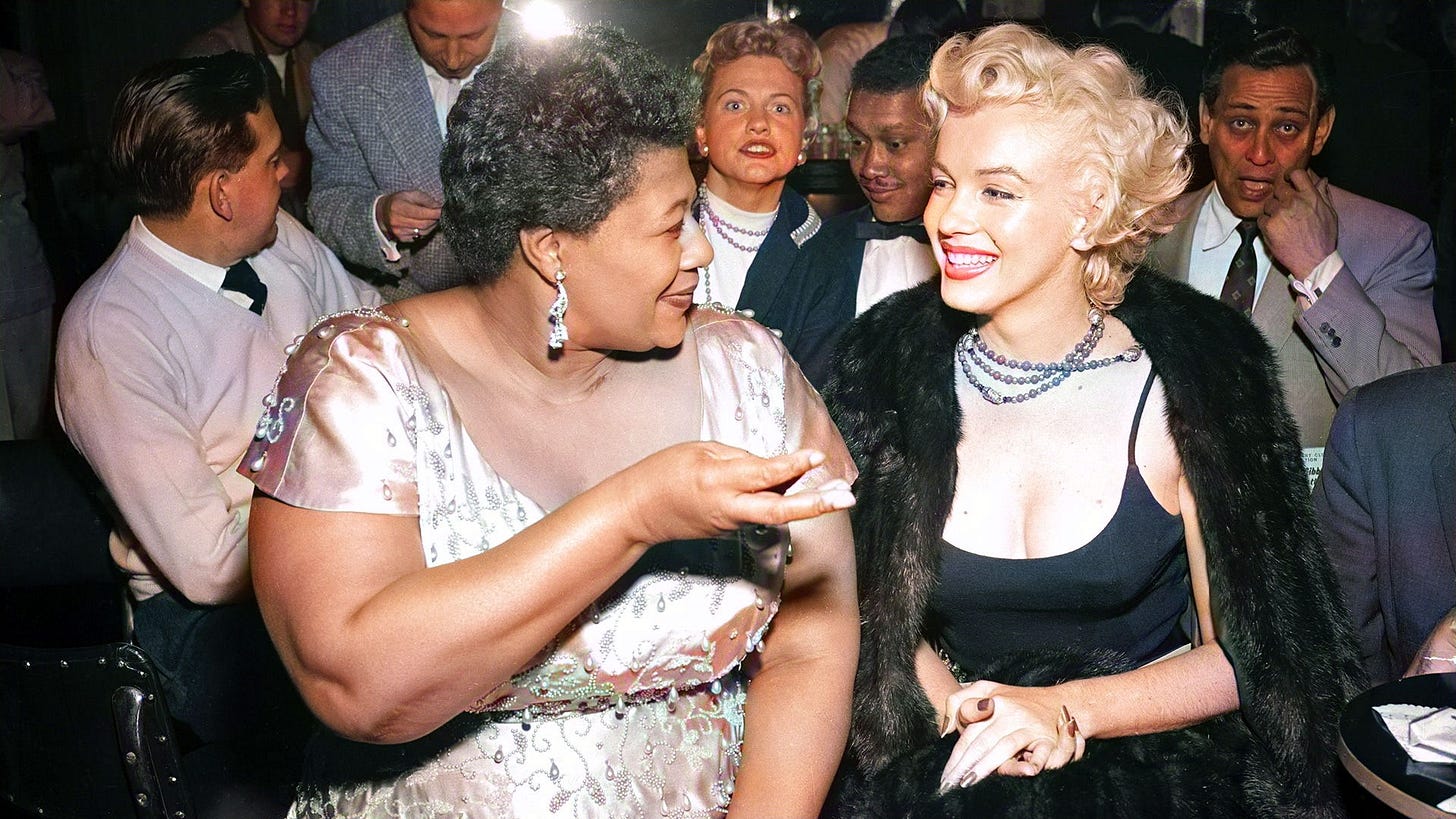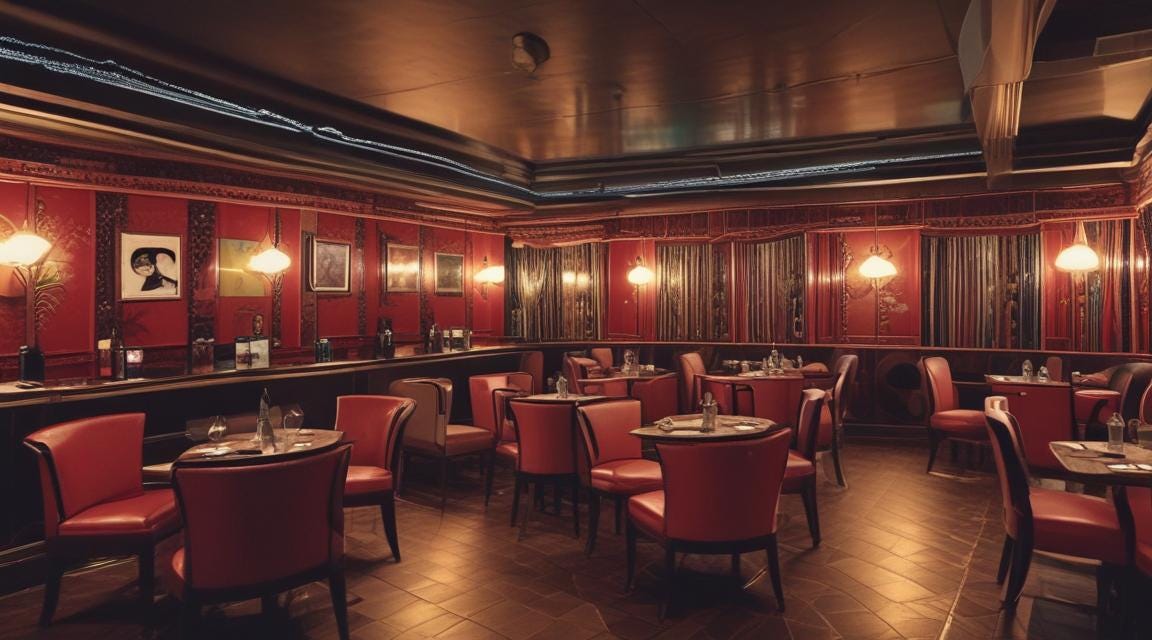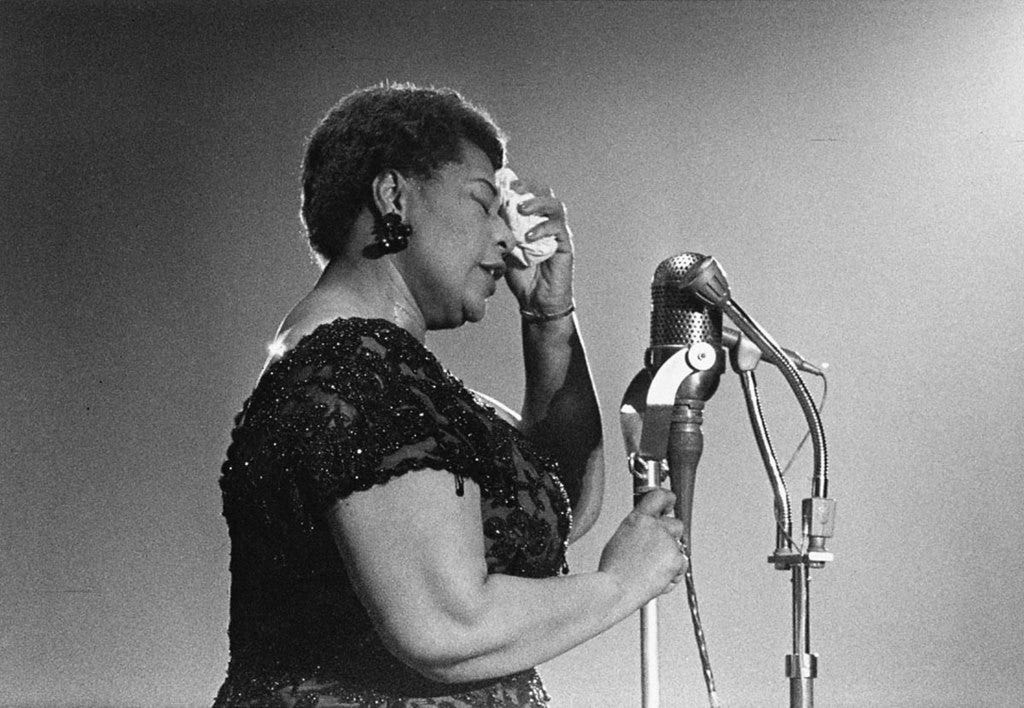The Unlikely Friendship That Changed Jazz History: Marilyn Monroe and Ella Fitzgerald
A Tale of Talent, Friendship, and Defiance in an Era of Segregation and Superficiality
In the mid-1950s, racial segregation and societal prejudices still ran deep in the United States, particularly in the entertainment industry.
Ella Fitzgerald, widely regarded as one of the greatest jazz vocalists of her time, was still denied access to prestigious venues, not just because of her race but also because of superficial judgments about her appearance.
It was during this time that an unexpected ally emerged—Marilyn Monroe, a Hollywood star whose public image was far removed from Fitzgerald’s world of jazz.
Breaking Barriers at the Mocambo Club
In 1955, Fitzgerald was blocked from performing at the famed Mocambo nightclub in Hollywood. Contrary to what one might expect, Fitzgerald’s race was not the issue, but rather her appearance.
The club management believed that Fitzgerald's physical appearance—being overweight and not conventionally glamorous—did not align with the nightclub’s image of the typical performer. This was despite Fitzgerald’s undeniable talent and growing popularity.
Monroe, who had admired Fitzgerald’s music for years, stepped in to change the narrative. She placed a personal phone call to the club’s owner and made an offer that was impossible to refuse.
Monroe promised to sit at the front table every night that Fitzgerald performed, knowing full well that her presence would draw media attention and A-list patrons. The club owner agreed, and Fitzgerald was booked for a week at Mocambo.
The Impact of Marilyn Monroe’s Support
True to her word, Monroe attended every performance, drawing significant press and celebrities to the venue.
Stars like Judy Garland and Frank Sinatra were seen in the audience, contributing to the club’s newfound success during Fitzgerald's run. Fitzgerald’s performances were a hit; from then on, she never had to perform in small clubs again.
Monroe’s intervention was pivotal in Fitzgerald’s career, elevating her to new heights and allowing her access to larger, more prestigious venues.
Fitzgerald never forgot what Monroe did for her. She would later express her gratitude, acknowledging that Monroe’s intervention was a turning point.
As Fitzgerald said in a 1972 interview in Ms Magazine, “I owe Marilyn Monroe a real debt... After that, I never had to play a small jazz club again. She was an unusual woman—a little ahead of her time. And she didn’t know it”.
A Friendship Beyond the Spotlight
Their relationship extended beyond this one act of kindness. Though they maintained a friendship, it remained somewhat distant due to Monroe’s struggles with substance abuse, which Fitzgerald reportedly found challenging to be around.
Nonetheless, Monroe continued to express her admiration for Fitzgerald both publicly and privately. When asked about her favorite singer, Monroe was quick to name Fitzgerald, stating that she admired her not only as a vocalist but as a person.
A Legacy of Solidarity
Monroe's and Fitzgerald's friendship stands as a testament to the power of solidarity and the role of allies in breaking down social barriers.
Monroe’s actions were not just a personal favor to a friend—they were a statement against the prevailing norms of the time.
In an industry where appearance often mattered more than talent, Monroe used her influence to ensure that Fitzgerald’s exceptional skills were recognized on the world stage.
This gesture helped to challenge the status quo, creating opportunities for Fitzgerald that she might not have had otherwise.
In an era marked by racial and societal divides, this friendship reminds us that individuals from different walks of life can come together to challenge injustice and uplift one another.
Monroe’s intervention on behalf of Fitzgerald helped solidify Fitzgerald’s career and contributed to the larger cultural shifts that were beginning to take shape during the civil rights movement.
Conclusion
The story of Marilyn Monroe and Ella Fitzgerald is more than just an anecdote about two celebrities—it reflects the power that personal connections can have in effecting change.
Monroe's willingness to use her fame to break down barriers for Fitzgerald demonstrates how acts of solidarity, even in the entertainment industry, can have far-reaching effects.
Their friendship, while rooted in mutual admiration, became a symbol of how people in privileged positions can use their influence to challenge societal norms and open doors for others.
By stepping in and advocating for Fitzgerald, Monroe played a small but meaningful role in the ongoing fight for equality in the arts, and her legacy is richer for it.
B&W Image: ISG, CC BY-SA 2.0, via Wikimedia Commons





